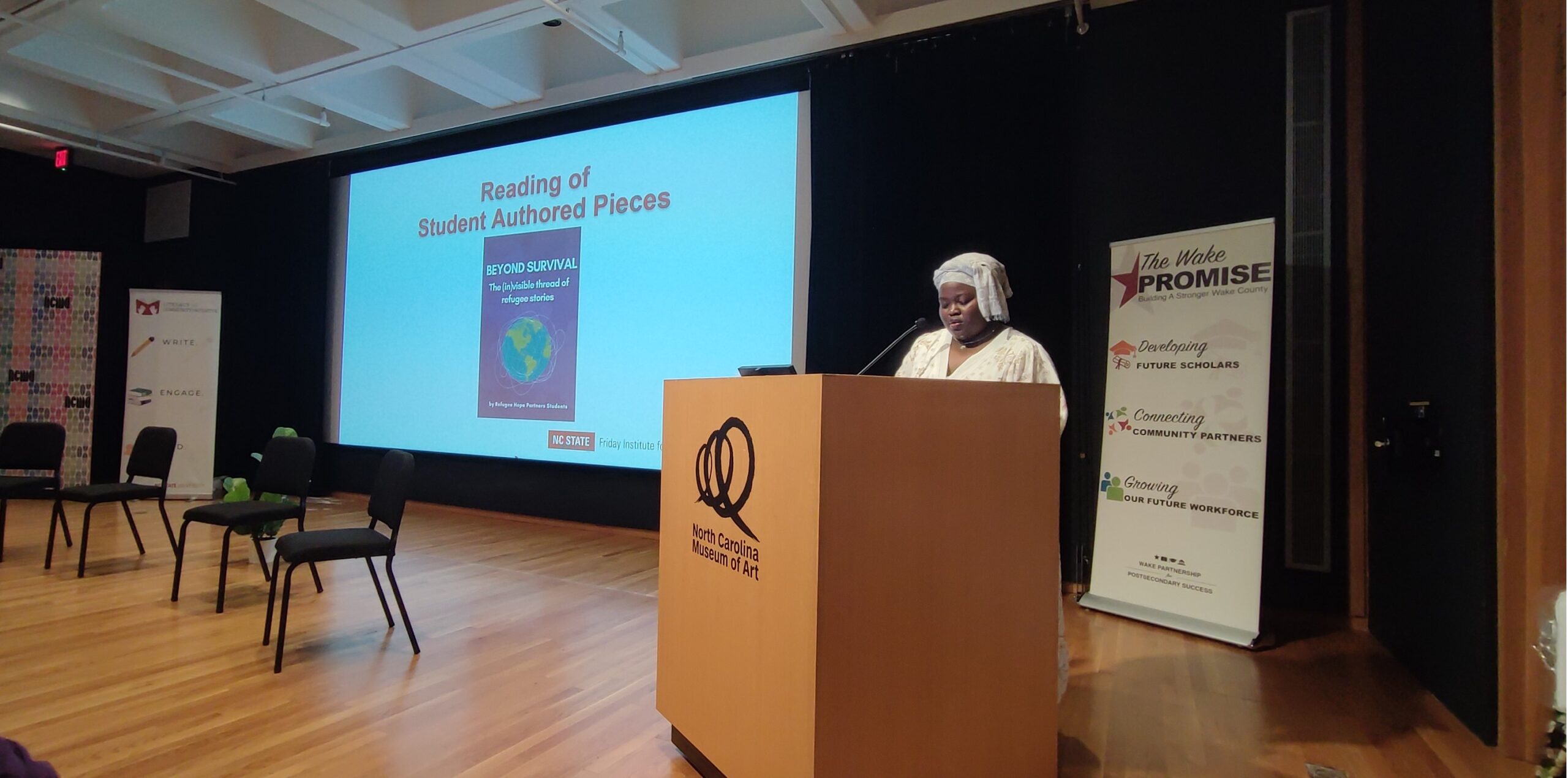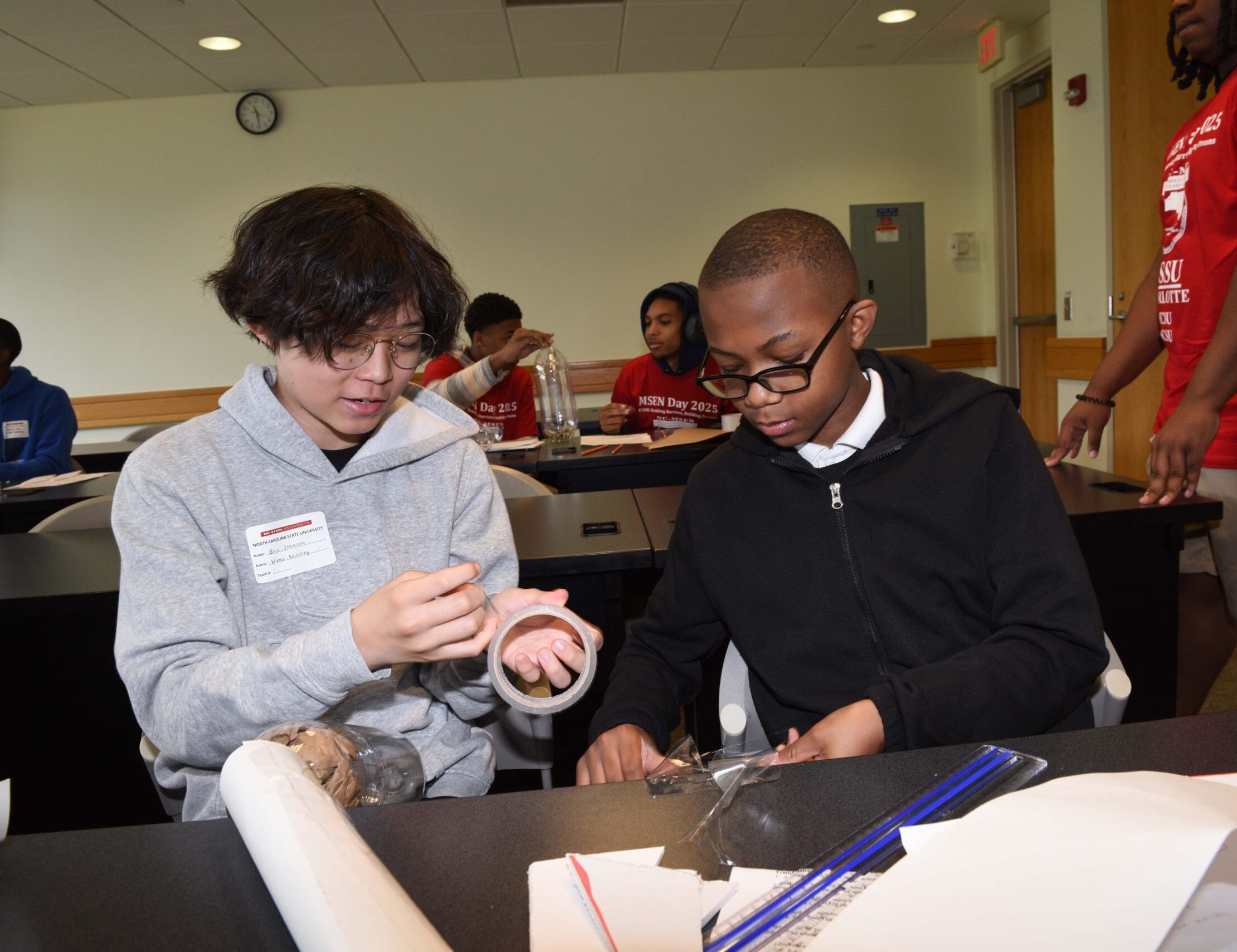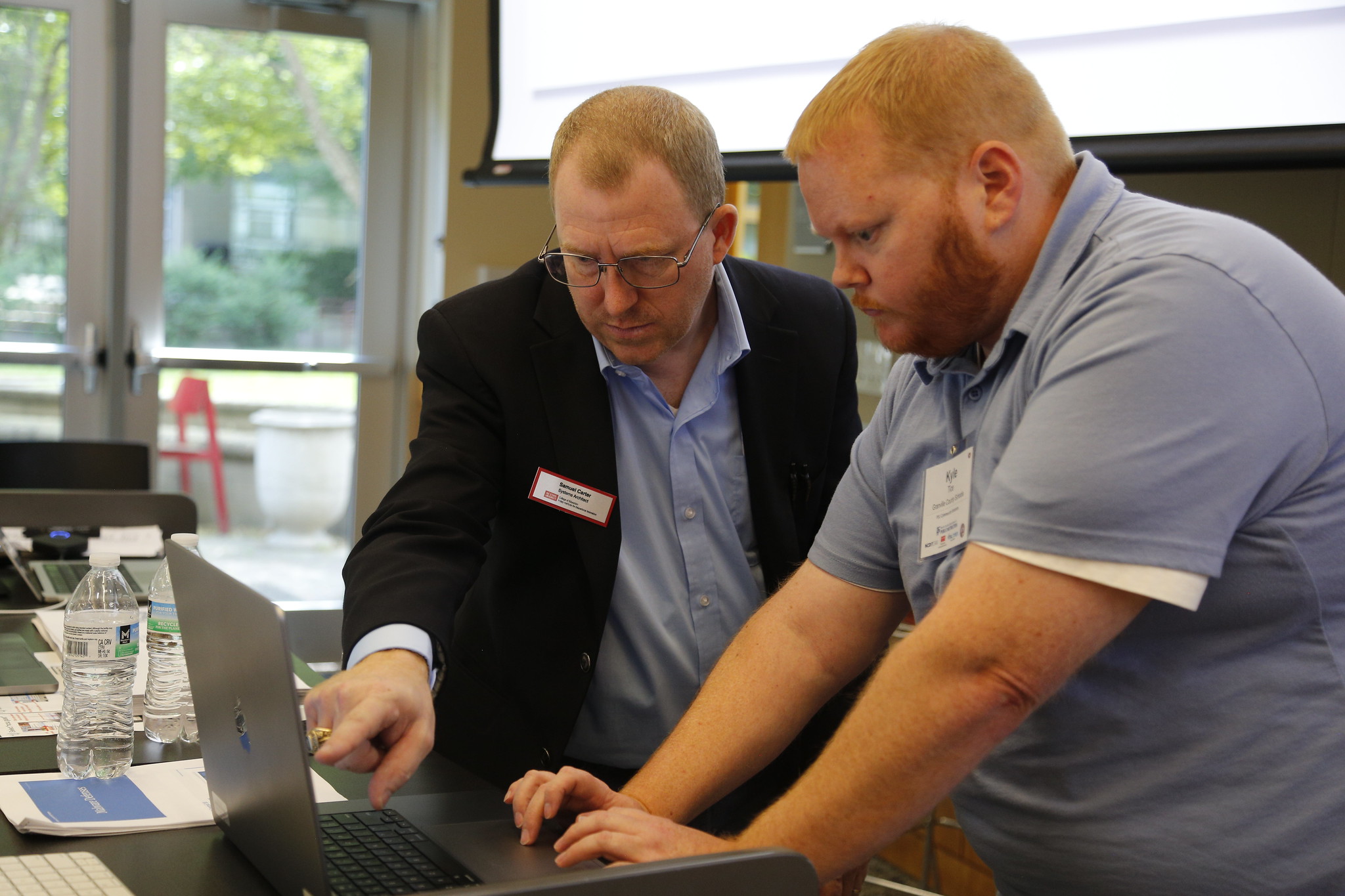PEER Group Acting Director Callie Edwards Aims to Grow and Diversify the STEM Workforce with New NSF Grant
A recently funded three-year, $39,984 National Science Foundation (NSF) Improving Undergraduate STEM Education (IUSE) grant will allow Callie Edwards, acting director of the Program Evaluation and Education Research (PEER) Group at the Friday Institute for Educational Innovation, to help investigate strategies aimed at improving the outcomes of undergraduate Black or African American men in entry-level mathematics courses in an effort to grow and diversify the STEM workforce.
“Collaborating on a grant like this is so personally meaningful to me,” said Edwards. “I care deeply about the academic success of Black males. As an equity-focused researcher and evaluator, I am always interested in telling the stories of those who are on the margins, whose stories are often not told.”
The grant, titled “Building Confidence through Culturally Relevant Co-requisite Mathematics Courses within Math Pathways,” was awarded in collaboration with UNC Charlotte, North Carolina Agricultural & Technical State University, UNC Greensboro, North Carolina Central University and UNC General Administration. The overall project totals $487,286.
“Challenges in education are never one-dimensional; they are complex and require input from multiple stakeholders and levers,” said Edwards. “I love that this project approaches Black male achievement from a systematic and culturally relevant lens. I am excited to partner alongside the project team to help understand the impact of culturally relevant practices on African American men in required college mathematics courses.”
The PEER Group at the Friday Institute will partner with the Math Pathways for African American Collegiate Transformation (MPAACT) project team to support their collection, analysis and reporting of formative and summative evaluation data. In addition to Edwards, James Birkett, a research associate for the PEER Group, and Amanda MacCormac, a graduate research assistant for the PEER Group, will work on this project.
The goals of the project are to determine the extent to which improved placement procedures coupled with culturally relevant advising, mentoring and co-requisite support courses impact Black or African American men’s course outcomes, mathematical self-efficacy and sense of belonging, goal orientation, content relevance and growth mindset.
Low-income, historically underrepresented and minoritized students are disproportionately enrolled in remedial mathematics courses and experience high rates of failure in college-level mathematics courses. Increasing success in required mathematics courses is key to eliminating equity gaps, according to a study from the Center for the Analysis of Postsecondary Readiness.
When the project team looked at the outcomes in required math courses at their institutions, they saw that African American men provided the highest opportunity for improvement in student success metrics. This project responds to the identified gap by implementing interventions at institutions with a demonstrated commitment to improving outcomes for African American men. More than 1,900 underprepared students will receive co-requisite support during the life of this grant.
The project team hopes that as mathematics pedagogy and other support structures improve, a broader population of students will be retained at UNC System institutions and in STEM majors. With these increases, STEM majors may appear more welcoming and attractive to incoming students from historically underrepresented groups. Their findings will be shared with communities of interest, and progress toward the project’s stated goals will be assessed through a rigorous evaluation plan.
- Categories:



